
Proudly sponsored by our Platinum Sponsor
Access IDLDRC 2024 from Anywhere in the World
TICKETS ON SALE NOW: The International Developmental Language Disorder Research Conference (IDLDRC) will return from 9-11 September 2024, providing a platform to share global research about Developmental Language Disorder (DLD).
Watching the 40+ on demand IDLDRC presentations is the perfect opportunity to keep up to date with current DLD research from around the world. It’s NEVER too late to register for IDLDRC and support DLD research.
IDLDRC 2024 Themes
Day 1
Advocacy & Awareness
Identification
Day 2
Education
Adolescents & Adults
Day 3
Intervention
Social Emotional
IDLDRC 2024 Keynotes
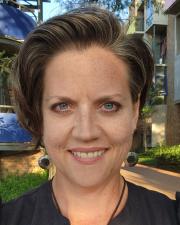
DAY 1: Professor Trina D. Spencer
The Science of Oral Storytelling
A narrative is defined as a spoken or written (including Augmentative and Alternative Communication modalities) monological telling or retelling of past events, either real or imaginary. Importantly, narratives contain causally related events told/retold in a temporal sequence acceptable to the verbal community in which it is used.
Narratives are powerful tools for supporting language development of diverse children, including those with Developmental Language Disorder (DLD). We live our lives and think in story format. This ability has evolved alongside human development and has facilitated the emergence and transfer of complex language. The narrative is useful, versatile, and pervasive because the human brain is skilled at detecting patterns. Narrative interventions that capitalize on this fact will discover that the patterns of narrative, and language generally, allow for rapid transfer across contexts, modalities, and languages.
In this talk, Dr. Spencer will unpack the discourse-, sentence-, and word-level patterns that are inextricably integrated within a narrative. These include the macrostructural schema made up of story grammar elements, the order and emphasis of which are culturally and linguistically derived. At the sentence level, syntactical patterns feature the use of subordinate and relative clauses and other types of elaborated noun phrases to establish complexity. The word-level patterns consist of morphological knowledge, general academic words, and domain specific concepts. Alongside an integrated model of narrative-based academic language intervention, Dr. Spencer will present a cogent set of principles to guide differentiation for children with DLD.
Learning Objectives
- Participants will describe the science that supports the use of oral storytelling for language interventions.
- Participants will define academic language and explain how their nesting is advantageous.
- Participants will learn how to tailor interventions for children with diverse language needs.
Dr. Spencer is a senior scientist and director of the Juniper Gardens Children’s Project at University of Kansas and holds faculty appointments in the Departments of Applied Behavioral Sciences, Speech-Language-Hearing Sciences, and Special Education. Drawing from speech-language pathology, applied linguistics, education, and behavior analysis, she concentrates her efforts on the oral academic language that serves as a foundation to the reading and writing of preK to 3rd grade students, with and without disabilities. She maintains a spirited research agenda that has yielded 70 peer review publications, 158 invited presentations, $15M in external funding, and several commercialized curricula, interventions, professional development systems, and assessment tools. Her multi-tiered interventions and assessment tools are used in several countries. Dr. Spencer values researcher-practitioner partnerships, community engagement, and cross disciplinary collaborations to accomplish high impact and innovative applied research.
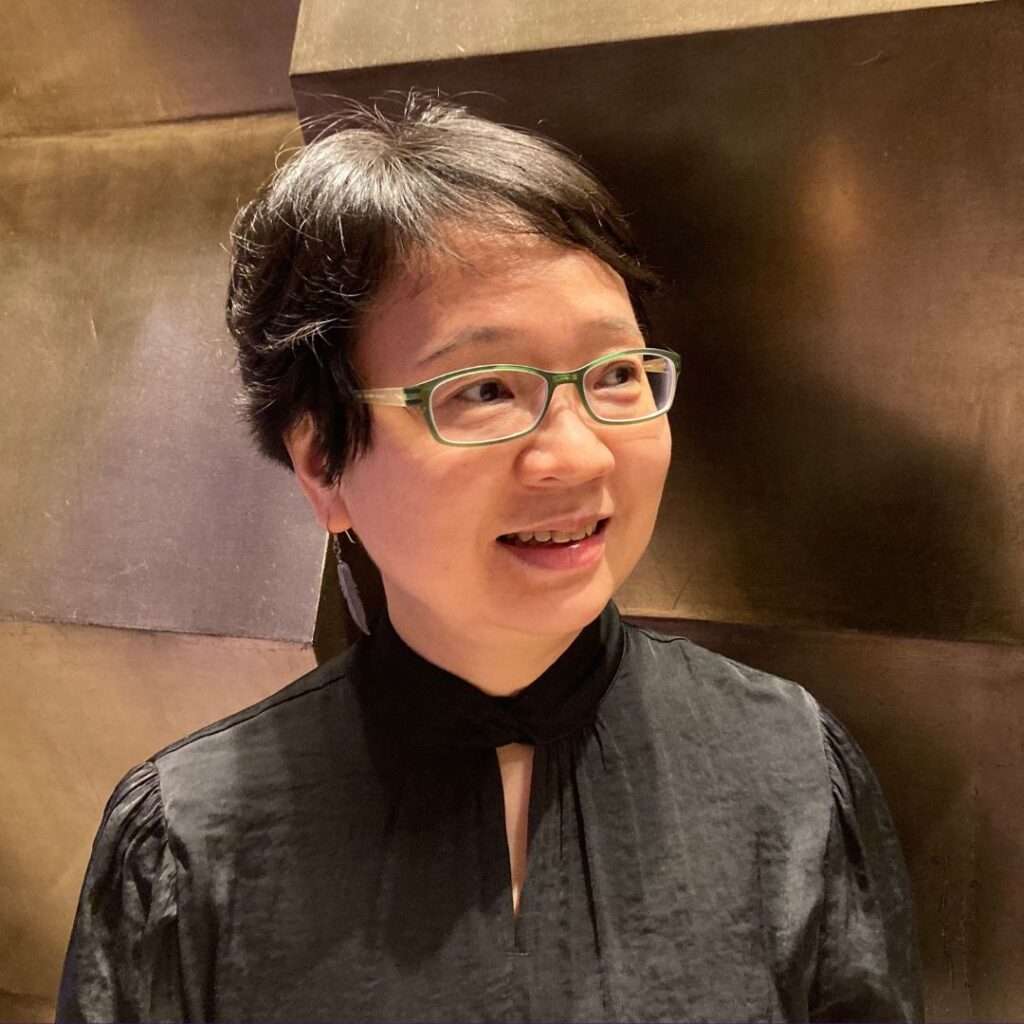
DAY 2: ASSOCIATE PROFESSOR ANITA MEI-YIN WONG
Towards an equitable service for bilingual children with DLD in schools: Where do we go from here?
Bilingual kindergarten children in the United States were much less likely to access speech and language services when compared to their monolingual English-speaking peers. This inequity also exists in other parts of the world and is a long-standing issue that requires a change in practice. In this keynote, Anita will present a critique on making a categorial diagnosis of DLD for bilingual children at school entry in the context of equitable access to services. Anita will discuss opportunities and barriers for the adoption of a proactive approach to language support for children from diverse backgrounds. Anita will also share some take-home messages with speech-language pathologists, educators, parents and caregivers who live or work with bilingual children.
Dr. Anita Mei-Yin Wong is an Associate Professor at the University of Sydney. As an ASHA-certified speech language pathologist, Anita has experience working with children from diverse backgrounds in the US and Canada before her academic career at the University of Hong Kong from 2000 to 2022.
Anita has a successful record of engagement with community partners in research, professional development and public education. She is a member of the international committee of RADLD to help raise awareness of DLD around the world and the co-convenor of the Hong Kong special interest group on Terminology for Child Language Disorders in Chinese. Anita’s current research interests are language intervention in English speaking children and in Chinese speaking children who learn English as an additional language.
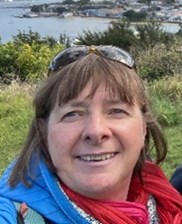
day 3: Associate Professor Rena Lyons
Integrating the perspectives of children with DLD and their families into research and practice
There are many drivers for listening to the perspectives of children with DLD and their families into research and practice. For example, partnership and collaboration with children and families are core features of both family-centred and child-centred care. Another driver is the pillar of ‘client/caregiver perspectives’ in evidence-based practice which refers to the unique characteristics, contexts, values, and expectations which each child with DLD and their family bring to the table. Further drivers are Article 19 of the Declaration of Human Rights (1948) and Article 2 of the UN Convention of the Rights of the Child (1989), which state that children and young people have the right be involved in decisions that affect them.
Despite these drivers, embedding the perspectives of children with DLD and their families in research and practice remains challenging. In this presentation, I discuss what we know about parental perspectives about DLD and collaborative working with families. I will discuss research on the perspectives of children and young people with DLD. I will outline the value of qualitative research to enable us to listen to and amplify the perspectives of children and families. I will explore how we can do better in terms of integrating the perspectives of children and young people with DLD and their parents into research and practice.
Dr. Rena Lyons is a speech and language therapist and Associate Professor in the Discipline of Speech and Language Therapy at the University of Galway, Ireland. She has over 35 years of clinical, teaching, and research experience. Her research interests include exploring collaborative working with parents, the voice of children with developmental speech and language disorders, narratives, person-centred care and the social model of disability.
IDLDRC Research Grant - Funding Research Into DLD
The best part? Profits from IDLDRC go to funding a DLD RESEARCH GRANT to further research into Developmental Language Disorder! Watch the videos below to meet our two previous grant recipients all funded by the delegates and sponsors of IDLDRC. THANK YOU!
Applications for the 2024 DLD Research Grant funded by the amazing sponsors and delegates of IDLDRC 2023 are now OPEN! Secure $10,000 AUD towards your DLD research project by applying online by Monday 16 September 2024: https://thedldproject.com/idldrc-dld-research-grant/
IDLDRC TIMELINE 2024
- Wednesday 21 February 2024 | Abstract Submissions Open
- Monday 17 June 2024 (close of business) | Abstract Submissions Close
- Tuesday 2 July 2024 | Abstract Outcomes Announced
- Monday 12th August 2024 | Pre-recorded Presentations Due
- 9-11 September 2024 | International DLD Research Conference
Majority World or Developing Communities GRants
IDLDRC Sponsors
Based in Western Australia, Fremantle Speech Pathology Services is a dynamic multidisciplinary clinic with over 30 therapists working across speech, language and literacy areas. The clinic promotes a strong culture of collaboration and support across the speech pathology community; it provides practical clinical experience for final year speech pathology students, which affords enormous satisfaction for all involved. Find out more about Fremantle Speech Pathology Services at their website.
For 31 years our business has produced cost effective resources to support children with Developmental Language Disorder and speech, language and communication needs. Devised by experts and loved by children, our resources include clear instructions and our hallmark appealing illustrations. We are confident that our worksheets, assessments and apps will work for you and the children you support. Visit https://www.blacksheeppress.co.uk
Ventris Learning’s Culturally and Linguistically Responsive Teaching resources help educators more effectively meet the instructional and assessment needs of all students including those who tend to become underserved in language and literacy. They also convey a linguistic consideration of the relationship between spoken and written language, and the knowledge and skills essential to literacy development. Ventris’ products include the Assessment of Literacy & Language (ALL) and Diagnostic Evaluation of Language Variation (DELV) tests. Ventris is also the University of Florida Literacy Institute’s publishing partner for the UFLI Foundations Explicit and Systematic Phonics Program. To learn more, visit https://www.ventrislearning.com/
CALL FOR ABSTRACTS - CLOSED
If you have any questions regarding your submission, please email conference@thedldproject.com.
United Nations Sustainable Development Goals Alignment
The work of the International Developmental Language Disorder Research Conference supports SDGs 3, 4, 8, 10, 16, 17 (and others). Each presentation will be aligned with relevant United Nations Sustainable Development Goals.
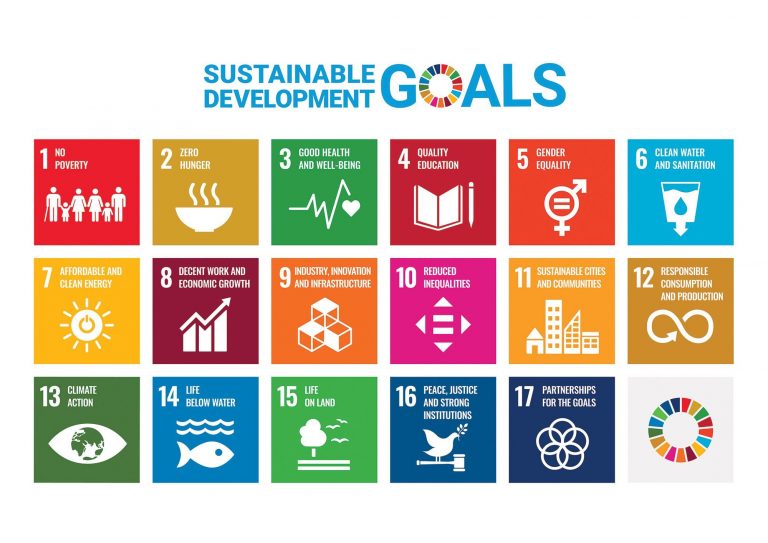
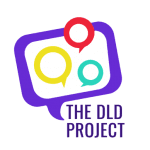
Who is Hosting IDLDRC 2024?
The International DLD Research Conference is coordinated by The DLD Project in Australia. We are an impact focussed social enterprise founded to elevate awareness and understanding of DLD. This is an exciting opportunity to present and engage with current research in a virtual space.





